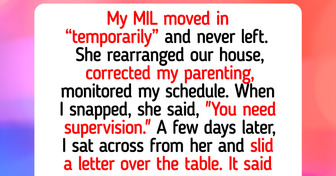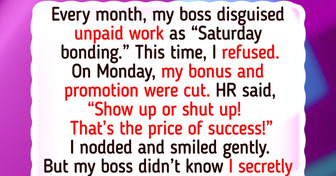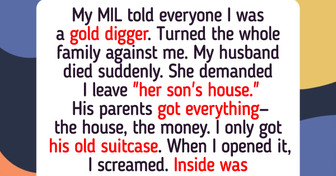HR Fired Me Right Before My Vacation, So I Used It Against Them


Think of what you want to do. It can be learning a new language, start a workout routine, practicing piano, or learning how to draw. Suppose you decide that you wanna do half an hour of sports every day, but it’s been two weeks, and you never started. The weird thing is that you really want it, but somehow can’t make yourself begin. It’s because it’s just overwhelming for you.
Half an hour of sports sounds just like too much, and you can already feel how boring it’s gonna be. Yeah, a month from now you’ll be all fit, but today you’re just going to feel bad. But let’s turn this half an hour into just one minute.
One minute of workout doesn’t sound like too much. You probably don’t even mind doing it right now. People figured out that our brain is lazy and found a way to trick it. Whatever your daily commitment is, do it for just one minute.

I know it’s so little it almost doesn’t count, but one minute is definitely better than zero minutes. And no one says you can’t keep doing it for longer if you feel like it. So, find anything you want to start doing — and do it for just one minute.
The point is that you have to do it every day, and at the very same time. You have to start doing this consistently to make a habit. If you try to devote yourself to half an hour of sports, you’ll probably do three days and then bail out. But you’ll probably manage one minute a day.
Don’t set the finish line. I know it’s tempting to say you’re going to get a great body by summer. But then the summer begins, and... then what? You don’t have a goal anymore and you stop doing this. No exercises again, and, in the end, you lose it all again.
Also, don’t expect that you’ll stay motivated by seeing the result. It’s not always true, so it’s better to focus on keeping yourself disciplined and trying to think about it as of some process you enjoy by itself.

Next, don’t blame yourself. Turns out, that blaming and shaming discourage people rather than make them progress. If you miss a day, just show some compassion for yourself and do it tomorrow. If you don’t like those dirty dishes that get collected in the kitchen sink, dozens of unanswered emails or your constantly stuffed desk, I have another trick for you. The one-minute rule says if there’s a task that can be completed in one minute, do it right away, without postponing.
If you finished your meal, just wash that plate immediately. It will probably take you just 20 seconds. And it won’t eventually turn into a huge pile of dishes that will transform into an hour of work. You always have this one minute to do it. Answer that email right away, throw out the garbage and put your sweater in the wardrobe.
Sounds easy, the tasks are quick. Still, this rule will require a lot of effort and discipline from you. It will save you tons of time. In the end, you’ll be less overwhelmed by all the little things that have accumulated. Also, your house will overall be way cleaner.

Actually, if you control yourself and follow this rule for long enough, it’ll eventually become a habit, and you won’t even notice doing all of these things. Now, here’s a trick for all the professional procrastinators. If there’s stuff you should do, but can’t make yourself start, just use a five-minute-rule. Again, what makes you discouraged is the realization that the task is hard, boring, complicated and that you’re going to be doing it for hours.
Your brain knows that, and it doesn’t like that, so it makes excuses for you not to start at all. So, just decide doing it for five minutes only, then you’re free to stop it if you don’t like it. The hardest part is to begin. If you trick yourself and don’t make yourself doing something overwhelming, it’ll be way easier to get into it.
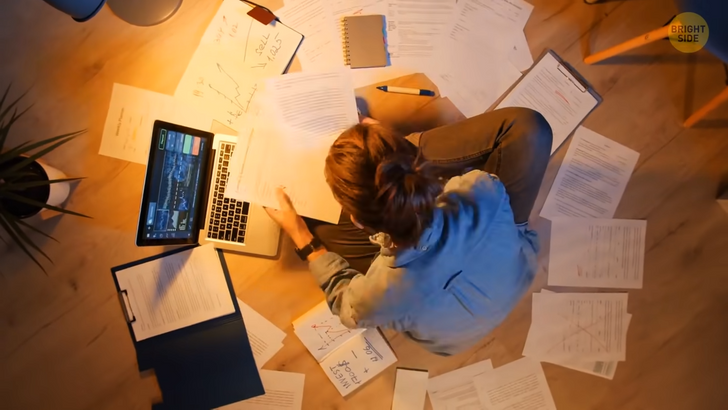
Set the timer for five minutes and force yourself to start. Usually, when the time is over, magic happens. Five minutes pass, but you find that you don’t mind doing it for five more minutes, or even until you finish the whole task. But even if you don’t have any motivation after these five minutes, and you didn’t enjoy any second of doing it, keep the promise you gave yourself and stop.
Better keep a list of all the things you need to do. Using this technique, you can go through all the other tasks. Try to find something you actually feel like doing for more than five minutes and stick with that one.
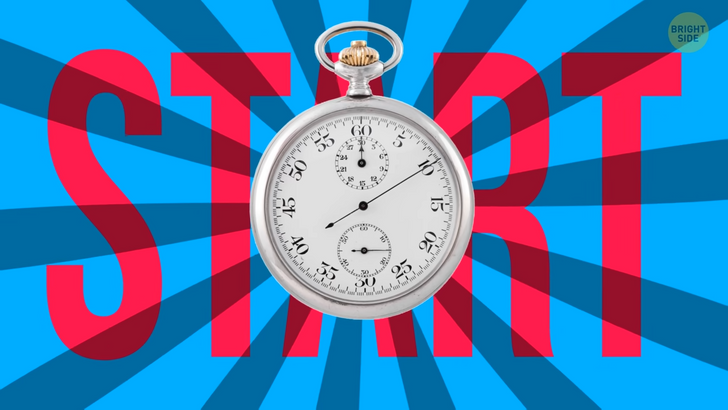
Another popular technique says that you should only focus on one task at a time. Divide everything you have to do into small tasks each of which takes approximately 25 minutes. You can combine many similar tasks that take little time together. So, make your list. Then get rid of all distractions, set your cell phone to the airplane mode, set the timer for 25 minutes, and do it. After you’re done, you can have a 5-minute break.
Also, don’t get distracted to do little things every day. Better just to put them all together and do a bunch at a time. Just allocate one hour a week to do things like paying the bills, checking transactions and anything else you need. To be most productive, plan ahead. Take 5 minutes every evening to plan your next day. You’ll know everything you have to do and when you have to do it, and it’ll save you a lot of time.
Try to make use of your “lost” time that is sitting in the bus or walking to the grocery store. Turn on some podcast or read a book. Or call to make an appointment while waiting for an online meeting to start. Set small goals. The task called “finish the project” is just too overwhelming to start. Divide it into several parts like, for example, to make a plan, to write chapter one, to write chapter two, to write the conclusion, to find visual material, and finally, to proofread it.

Now, instead of one huge task, you have 6 smaller ones that don’t look that scary. If they still look overwhelming, just split them into more. Then, do these tasks one by one. What’s that old saying? How do you eat an elephant? One bite at a time!
You can even cross them out for your own satisfaction. By the way, what’s the biggest number of tasks you can do in one hour? In one day? Turn it into a competition and test yourself. And don’t give yourself too much time: it proves to be a good tactic.
If you feel like you need one hour to make something done, give yourself just half an hour. Even if you don’t finish it in half an hour, you’ll probably do it in 45 minutes, which is still 15 minutes faster than you expected it to take. Also, make use of your natural patterns. Try to track what time of the day you’re most productive. Then, plan your time accordingly, so that you can do the most important stuff exactly during your most productive hours.

For your most unproductive hours, plan something that doesn’t require much brainwork, like folding laundry. If you don’t feel like doing anything, just start with the least unpleasant task at the moment. Or with something that doesn’t require a lot of thinking like organizing your desk or washing the dishes.
The key is that you should start doing at least something. It’ll set you in the right mood of doing things rather than procrastinating on the couch. You’ll probably get into the working flow and will be able to do more complex things soon enough.







